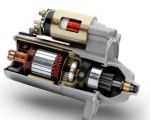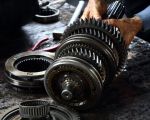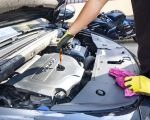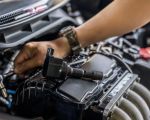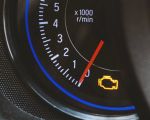- 1-Common-Causes-of-Car-Jerking-When-Accelerating
- 2-Engine-and-Fuel-System-Issues
- 3-Transmission-and-Drive-Train-Problems
- 4-Electrical-and-Sensor-Malfunctions
- 5-Real-Life-Case-Studies-of-Car-Jerking
- 6-How-to-Prevent-and-Fix-Car-Jerking
- 7-Where-to-Find-Trusted-Repair-and-Support
Common Causes of Car Jerking When Accelerating
Experiencing a car jerks when accelerating can be frustrating and even dangerous if not addressed promptly. Various factors contribute to this problem, ranging from engine troubles to transmission faults. Understanding the root causes can help drivers identify issues early and seek proper solutions.
Typical causes include fuel delivery problems, ignition system faults, transmission issues, and malfunctioning sensors. Each of these affects how power is delivered to the wheels, resulting in jerky movements during acceleration.
Engine and Fuel System Issues
A common reason your car jerks when accelerating involves the engine and fuel system. Dirty fuel injectors or a clogged fuel filter can disrupt fuel flow, causing uneven engine performance. Additionally, faulty spark plugs or ignition coils may misfire, leading to hesitation and jerking.
Regular maintenance, such as replacing filters and spark plugs, can prevent these problems. For example, one Rescue & Towing customer shared how replacing worn spark plugs eliminated the jerking in his sedan, restoring smooth acceleration.
Transmission and Drive Train Problems
Transmission issues often manifest as jerking when accelerating. Low transmission fluid, worn clutch plates in manual cars, or failing torque converters in automatics can interrupt power flow. These mechanical faults cause the vehicle to surge or jerk unexpectedly.
Ignoring transmission symptoms may lead to costly repairs or complete failure. Timely inspection and servicing are crucial to maintain a reliable drive train.
Electrical and Sensor Malfunctions
Modern vehicles rely heavily on sensors to regulate engine and transmission functions. Malfunctioning sensors like the throttle position sensor or mass airflow sensor can send incorrect data, causing jerking during acceleration.
Diagnostic tools can pinpoint sensor failures, and replacing faulty components often resolves the jerking. A driver recently reported to Rescue & Towing how a faulty sensor replacement saved their vehicle from further damage.
Real-Life Case Studies of Car Jerking
Consider the story of Mike, who noticed his SUV jerking whenever he pressed the gas pedal hard. After a thorough check, mechanics found clogged fuel injectors combined with old spark plugs. After servicing, Mike’s SUV accelerated smoothly again.
Another case involved Lisa’s sedan that jerked due to a failing transmission solenoid. Once replaced, her driving experience improved dramatically.
How to Prevent and Fix Car Jerking
Regular vehicle maintenance is the best defense against car jerking issues. Follow scheduled oil changes, replace filters, inspect spark plugs, and monitor transmission fluid levels. Using high-quality fuel and avoiding harsh driving habits also help prolong vehicle health.
If your car jerks when accelerating, seek professional diagnosis to avoid worsening problems. Preventive care paired with prompt repairs ensures safety and smooth rides.
Where to Find Trusted Repair and Support
For reliable repair services, trusted products, and expert advice, visit Rescue & Towing. Whether you need emergency towing or professional diagnostics, their experienced team can guide you to the best solutions tailored for your vehicle’s needs.
Choosing reputable service providers gives you peace of mind and keeps your car running safely and smoothly.













